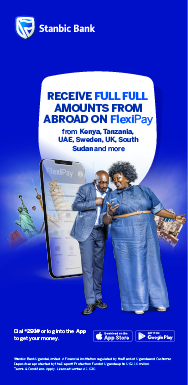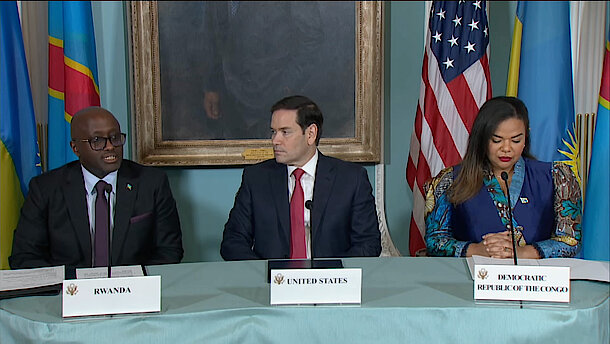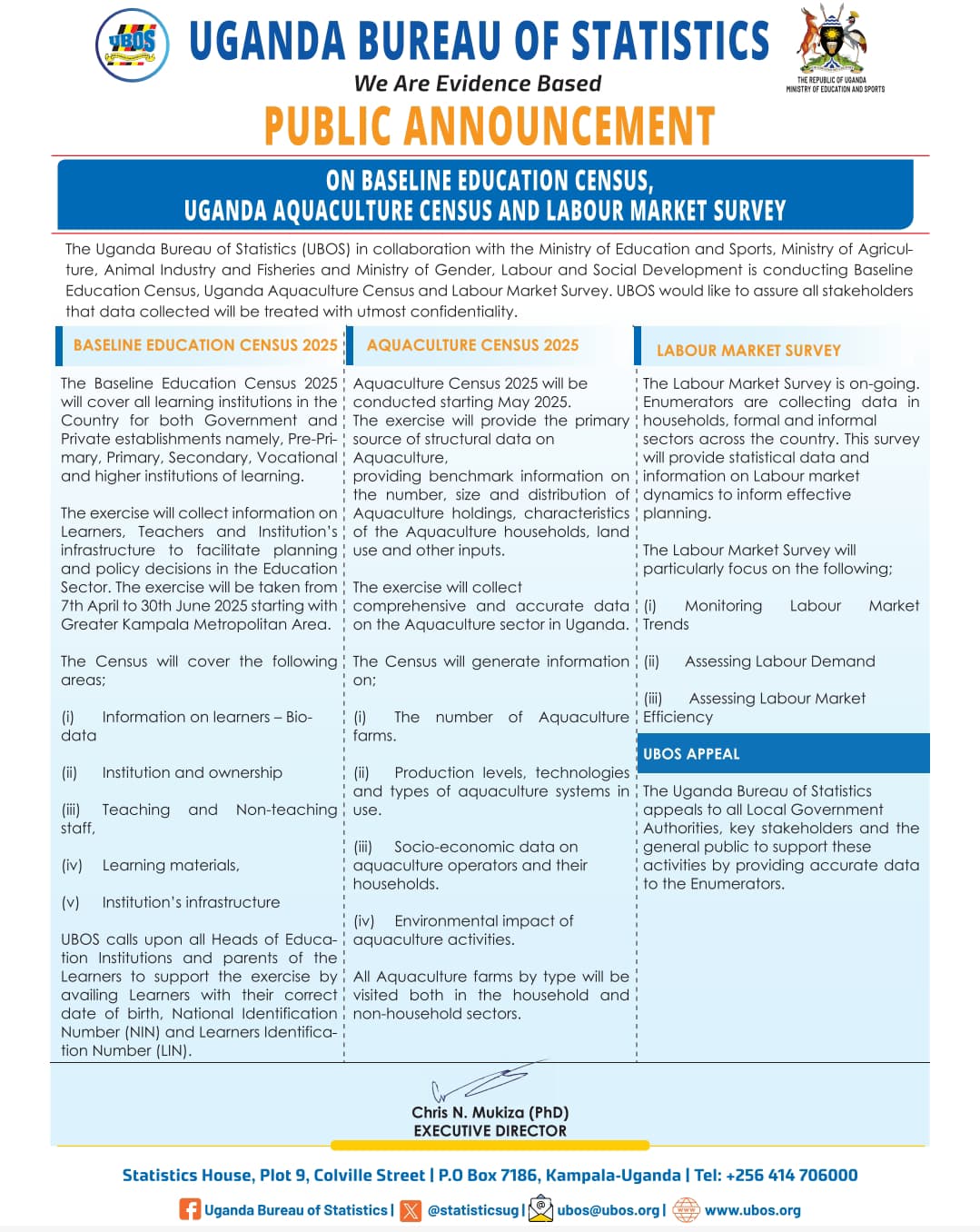Washington, D.C. — The Democratic Republic of the Congo and the Republic of Rwanda have signed a landmark peace agreement in Washington, D.C., in a ceremony hosted by U.S. Secretary of State Marco A. Rubio and attended by key international stakeholders.
The accord, hailed as a critical turning point in the region’s security and political landscape, was brokered by the Trump administration and facilitated by the State of Qatar.
Rwandan Foreign Minister Olivier Nduhungirehe and DRC’s Foreign Minister Thérèse Kayikwamba Wagner signed the agreement at the U.S. Department of State, with former U.S. President Donald Trump set to meet both ministers in a follow-up session.
Trump, who personally pushed for the deal and seeks credit for its success, is reportedly leveraging the diplomatic breakthrough as part of his campaign to be considered for the Nobel Peace Prize.
“Let me begin by expressing our sincere appreciation to President Donald Trump for his personal engagement in facilitating this historic agreement,” said Minister Nduhungirehe.
“We also extend our gratitude to Secretary of State Marco Rubio, Special Advisor Massad Boulos, and the entire State Department team. Your dedication has been indispensable.”
The agreement includes sweeping provisions: respect for territorial integrity, cessation of hostilities, disarmament and conditional integration of non-state armed groups, establishment of a Joint Security Coordination Mechanism, facilitation of refugee returns and humanitarian access and an economic integration framework and enhanced U.S. investment.
At the core of the deal is the Joint Security Coordination Mechanism, designed to oversee the neutralisation of the FDLR (Democratic Forces for the Liberation of Rwanda) — a remnant of the group responsible for the 1994 Genocide against the Tutsi.
“FDLR is no ordinary militia,” Nduhungirehe emphasised. “It is the remnant of the forces which committed the Genocide against the Tutsi in Rwanda in 1994, in which a million people were killed. The commitment made here today is for an irreversible and verifiable end to state support for FDLR and associated militias. That is the bedrock of peace and security in our region.”
The African Union Commission Chairperson, Moussa Faki Mahamat, and the AU Facilitator, President Faure Gnassingbé of Togo, were also represented, reaffirming the role of African-led processes in paving the way for this U.S.-hosted outcome.
Qatar, which hosted the early mediation rounds in Doha, played a central diplomatic role. Minister Nduhungirehe credited Minister of State Mohammed Al-Khulaifi and the Qatari Foreign Ministry for jumpstarting dialogue between the DRC government and the M23/AFC rebel movement — an adjacent peace process still ongoing.
The peace agreement also focuses on economic cooperation, with an eye on joint development projects and U.S. private sector investment.
With the signing, the agreement enters into immediate force. Implementation will be monitored by the Joint Coordination Mechanism and the African Union, with logistical and diplomatic support from both the U.S. and Qatar.











